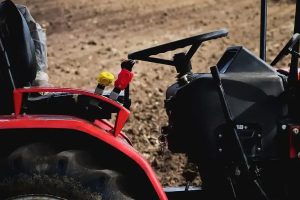Impact of pandemic induced labour shortage in Chennai

Image by @abhijeetgaikwad10 on UnSplash
Ever since the coronavirus pandemic hit the global economy, economists have been discussing the exact shape the recovery will take. Will it be a U-shaped recovery, i.e a prolonged downturn followed by upturn; or a V-shaped recovery, a downturn followed by a quick upturn; or a W-shaped recovery, a recovery followed by a downturn and a recovery again, and most interesting of all, K, where some sectors see recovery, but some suffer a further downturn?
Indian automobile sector seems to have found an answer for itself. September sales have been good. Business Today quoted a senior auto sector official saying, ‘If you were to look at the curve, then the Indian auto industry has seen a V-shaped kind of recovery.’
Within the auto sector, tractors are doing especially well for the last few months. In September, the top tractor makers saw a big jump in sales. Mahindra’s tractor wholesales went up by 18% compared to the same period in last year, TAFE’s by 38%, Sonalika’s by 51%. Overall, the segment saw a 28% jump.
Some have said this could be because of pent-up demand. After all, there was very little activity during the early stages of pandemic and lockdown. In an interview to ET Now, Pawan Goenka, MD & CEO, Mahindra & Mahindra, India’s top tractor maker, said, “in tractors, it is not just pent-up demand because the industry is up 12% compared to last year over six months in spite of being 80% down in April.”
The demand for tractors is being driven by a good monsoon this year, higher land under cultivation, and most importantly, shortage of farm labour. Tractors are the first labour substituting equipment that farmers go for when there is a shortage. Farm sector in many parts of the country was dependent on the migrant workers, who went back to their hometowns during the lockdown. With activities picking up, the agricultural sector faced a huge labour shortage.
This, in turn, had turned out to be a boon for the tractor industry.
However, at another part of the auto sector value chain, the labour shortage is causing pain. Chennai is one of the key ‘auto parts’ clusters in the country. For many MSMEs in and around Chennai, the labour shortage is turning out to be a bottleneck.
An MSME unit owner we spoke to said that many migrant labourers who left the city during the early days of the pandemic haven’t come back. ‘Many went on special trains. Now, there are none,’ he said. The expectations have also gone up. ‘We read news about how some businesses are flying their workers back. However, not everyone can afford it.’
Besides, Chennai has emerged as one of the key coronavirus hotspots. There are at least a 1000 new cases every day according to the data released by the state government. This makes it harder.
It has been tough to bring even those who stay around Chennai back, because of the lack of public transport. ‘Some of us have been discussing pooling of buses to ply workers who are around Chennai, but it is yet to take the needed momentum,’ another MSME owner said.
In the short run, many MSME owners are depending on the government to do something about the labour shortage. Transportation will solve some of the issues, but not all. Many still face the cash crunch and are worried about the situation when the moratorium period ends.
In the long run, MSMEs will have to rethink the engagement with labour.
This research was developed as part of the Bharat Inclusion Research Fellowship.
